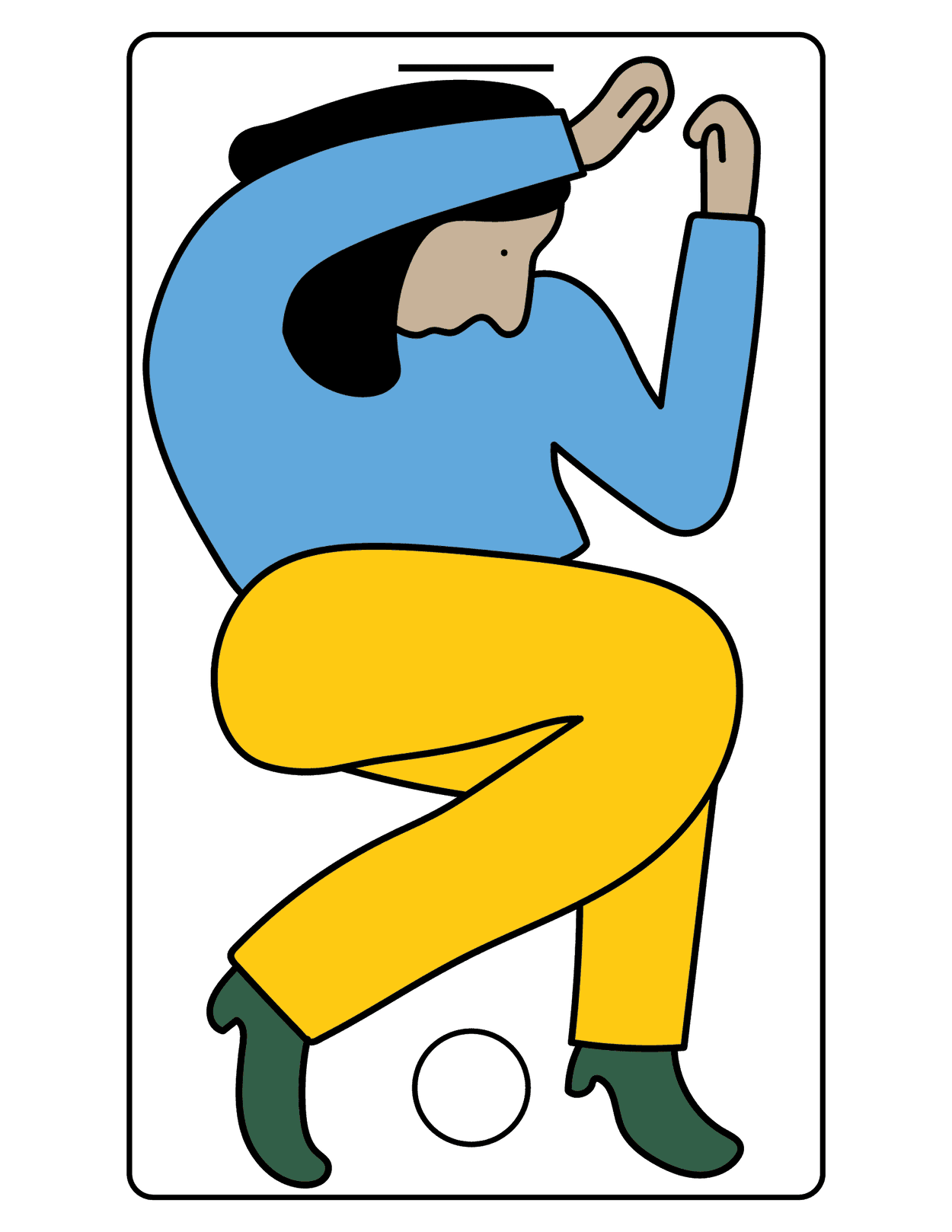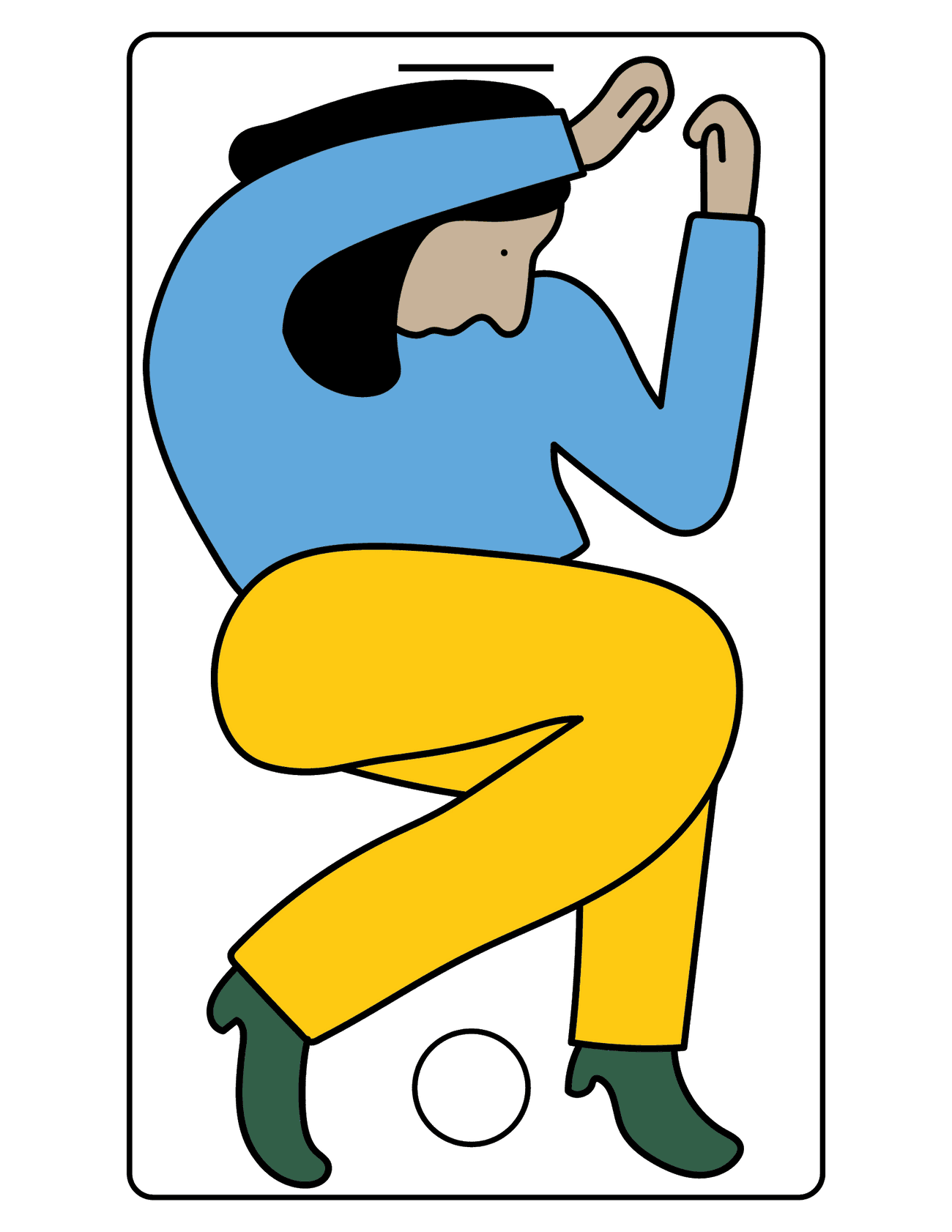So Much for Thinking Different
Big corporations like Apple have long claimed to hire misfits and freethinkers. In today’s hyperpolitical workplaces, with their zeal for conformity, these promises have never been more destructively hollow.




It was the stuff that Mad Men dreams were made of. An ad campaign that ignited not just material desire, but a sort of religious fervor—a sense of oneness with the brand that shared your passions and perspective on the world. Richard Dreyfuss’ voiceover played as images of bygone visionaries flashed across the screen: Albert Einstein and Alfred Hitchcock, Martin Luther King, and Mahatma Gandhi. The script was half toast, half sermon.
Here’s to the crazy ones.
The misfits.
The rebels.
The troublemakers.
The round pegs in the square holes.
The ones who see things differently.
They’re not fond of rules.
And they have no respect for the status quo.
You can quote them, disagree with them,
glorify or vilify them.
About the only thing you can’t do is ignore them.
Because they change things.
They push the human race forward.
While some may see them as the crazy ones,
we see genius.
Because the people who are crazy enough to think
they can change the world, are the ones who do.
Aired in 1997, this was the inaugural advertisement in the “Think Different” campaign that launched Apple into a new era of stratospheric success. Steve Jobs had recently reclaimed his position as head of the struggling company, and this notion, of being visionary enough to appreciate the genius of those so-called troublemakers—whose real trouble, of course, was that they were innovators ahead of their time—was seductive and aspirational and extremely Y2K. As America prepared to enter a new millennium, its forward-looking culture and old-school capitalistic values had coalesced around a new trend: the commodification of nonconformity.
The countercultural voices of the time replied that this was all bullshit, that predatory brands were just selling Americans on the mass-produced myth of their own specialness. The new consumer culture was criticized with particular gusto by Fight Club, in which nihilistic anti-hero Tyler Durden instructed his acolytes that “you’re not the car you drive. You’re not the contents of your wallet. You’re not your fucking khakis. You’re the all-singing, all-dancing crap of the world.” But this was the inescapable trap of making nonconformity into a trend: Being the kind of person who quoted Fight Club was itself a personal brand, a lifestyle all its own. Once, your misfit status was imposed upon you by a society that wasn’t ready, that didn’t understand; now, you advertised it yourself on a $15 mass-produced Hot Topic T-shirt that said, “I do whatever the voices in my head tell me to do.” Declaring yourself an outsider was just another form of opting in.
Inevitably, corporations caught onto the business utility of celebrating the oddballs among and swiftly began advertising their desire to draw “freethinkers,” “iconoclasts,” and people with “unorthodox methods” into the fold (to quote some recent corporate job postings). Bring your whole, crazy self to work! Even the CIA recently released a recruitment ad targeted at the millennials who came of age on this you’re-so-special messaging: “I am unapologetically me. I want you to be unapologetically you, whoever you are.”
Ah, do you now?
The answer, of course, is no; none of these companies actually want a freethinking iconoclast at their corporate strategy lunches, asking uncomfortable questions and disrupting the status quo. The effort to appear otherwise is just another slick branding gambit, a clever recruitment strategy for the guy they do want to attract: a Yale grad with summer internship experience at McKinsey, who fancies himself a freethinker because he has the right liberal politics and did a poetry slam once during sophomore year.
One need look no further than Apple’s recent public dust-up for an excellent indication of the depths of this branding bullshit. In April, the company hired Antonio Garcia Martinez, an ad engineer who had also authored a 2016 New York Times-bestselling memoir about the tech industry called Chaos Monkeys, to lead an ads team—and then fired him in an abrupt about-face one month later, after Apple employees complained that the memoir contained offensive passages.
The controversy highlights an issue far bigger than one corporate firing: the tension between a theoretical, sloganeering appreciation for the misunderstood genius of misfits, and the reality of having one of those misfits in your office, offering the unorthodox worldview and hard-hitting truths he was allegedly brought in to deliver. Apple’s recruiting team might have seen the promise in Garcia Martinez’s nontraditional background, including a book that colorfully and fearlessly lampooned some of tech’s most important (and self-important) icons—but other employees only saw a hateful, sexist weirdo whose presence in the office made them literally unsafe.
The chasm between the lofty promises of Apple’s “Think Different” campaign and the workplace reality for anyone who dares to do just that has never been so yawning. The purpose of a true creative is to shine a light into dark places, to be provocative, to touch society’s third rails and send up sparks. Offending people may not be a requirement of the job, but it’s an unavoidable hazard, and one that liberals have traditionally fought to protect. The argument for freedom of creative expression drew a bright line between offense and harm, and while we always agreed that art could be political, it was not, crucially, policy: At the end of the day, the artist’s ideas exist in a realm where the worst thing they can do is offend.
But like the now tattered Hot Topic T-shirts of our youth, this argument is out of style. Contemporary culture increasingly sees no distinction between public and private, between the social and the professional, or between exploring an idea in an artistic setting and endorsing it for practical application. The political is not just personal, but professional and social and everything else, a lens superimposed over every relationship, every hiring decision, every utterance on social media.
Corporations are caught between two competing sets of values in a trap of their own making: paying the customary lip service to a love of creative, rebellious boundary-pushers, yet also assuring their increasingly political employees that they’ll never have to work with one. Hiring managers may wax poetic about their desire for the sort of provocative freethinker who can bring innovation to products and processes, but there is no room for this sort of person in a workforce that balks at the slightest threat of ideological discomfort—and particularly not in an environment where every hiring announcement prompts a rash of frenzied digging for evidence that the honored party is guilty of bad acts, or bad thoughts, and ought not to be allowed through the door. This messaging was disingenuous before, but now it’s downright removed from our cultural and political reality.
Who does this paradox affect? Sure, corporations will lose out on some genuinely interesting voices, but these voices are already few and far between in boardrooms. Their multi-billion-dollar valuations and high-rolling corporate executives will survive. Instead, as is frequently the case with today’s high-minded cultural crusades, the people who will be most affected are the people who have the most to lose. Creative people, even very successful ones, have always had day jobs to pay the bills: the talented author who drives a subway train, the award-winning composer who moonlights as a plumber. But for the vast majority who have never had any hopes of making a living from their art, remaining palatable to normal employers, the kind who offer a regular salary, benefits, and health insurance, is very much a concern. Everyone is aware that, these days, few companies want to deal with the near-certain public fallout of hiring someone accused of dancing too intimately with one form of bigotry or another—and few job searchers want to risk being the artist whose provocative creation flies a little too close to the sun, given that even an acclaimed and successful piece of work might eventually render you unemployable. Sure, that provocative piece of writing might be a bestseller next year. But if it might also cost you your livelihood five years down the road, who can afford to find out?
As long as the present culture persists, artists will understand that it is simply impossible to bring their whole selves to work, or even allow employers to know about them. Some will find solace in pseudonymity, laboring by day under their own identities, creating by night under another, setting aside a walled (and firewalled) garden for their work where bosses and coworkers can’t enter. The only ones who will produce edgy work under their own names will be those who can quite literally afford it. Get excited for the next wave of “countercultural art” made exclusively by the 1 percent: a rich kid’s fantasy of creative rebellion, drawn and composed and written and performed by the same people who will happily demonstrate their brave nonconformist credentials by shelling out a few thousand bucks for a limited-edition pair of AirPods.
Really, we’re arriving exactly where we were always meant to end up. When corporations raised a glass to the crazy ones, when they said they wanted a revolution, what they really meant is that they would bravely sign on to the focus-group-tested, mass-produced, trademarked, hashtagged activism that already enjoys widespread popularity. What they see is not genius, but an opportunity to cash in. When Apple touted its commitment to appreciating those who “Think Different,” it wasn’t because it wanted artists to help shape its vision. It’s because being the brand of choice for those who fancy themselves visionaries, misfits, and rebels is, first and foremost, a lucrative business.
Kat Rosenfield is a culture writer and novelist. Her next book, No One Will Miss Her, will be published by William Morrow in October 2021.